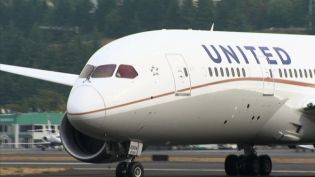
United Airlines is taking a public relations beating for its remarkably poor customer service. This has spurred a flurry of uninformed calls for more government regulation of airline practices. Derek Thompson in The Atlantic has a point that the federal cap on overbooking compensation for involuntary removal (codified at 14 C.F.R. § 250.5) should be eliminated. But this doesn’t get to the heart of the matter: why would a service provider’s employees feel comfortable treating a customer so poorly?
The answer is they face greatly reduced competitive pressures thanks to government policy. Since the Air Commerce Act of 1926, federal law has imposed ownership and control restrictions on U.S.-flag airlines. These restrictions were tightened under the Civil Aeronautics Act of 1938. Under current law, the maximum foreign ownership and control share of U.S.-flag airlines is 25 percent (see 49 U.S.C. § 40102(a)(15)(c) for the relevant definition of “citizen of the United States”). This is why Richard Branson only held 25 percent of Virgin America prior to its sale to Alaska Airlines. The rest was owned by a New York hedge fund.
The Air Commerce Act of 1926 also prohibited cabotage (see 49 U.S.C. § 41703 and 19 C.F.R. § 122.165), whereby foreign airlines service U.S. domestic routes. There are extremely narrow emergency exceptions to this broad ban on foreign airline competition along U.S. routes and these typically are only granted when a remote domestic route in the Pacific loses all U.S.-flag carrier service—which has occurred in Guam, for instance.
Meanwhile, the four largest U.S. air carriers, their unions, and their protectionist political allies have been waging a war on meager proposals to expand foreign international air travel competition. They have tried to halt Norwegian Air International’s plan to operate sub-$100 fare transatlantic flights and are currently seeking to halt three Gulf carriers’ expansions into the U.S. international market, which is predicated on the debunked claim that the Gulf carriers are illegally subsidized. These Gulf carriers, incidentally, enjoy some of the highest customer satisfaction ratings in the world. But heaven forbid United, Delta, American, Southwest, and their unionized workforces face a little market pressure from superior competitors.
If American consumers wish to enjoy improved service quality in air travel, they should demand that Congress repeal 90 years of anti-competitive federal law. Less regulation of air travel, not more, is the solution.
Marc Scribner is a senior fellow at the Competitive Enterprise Institute.









